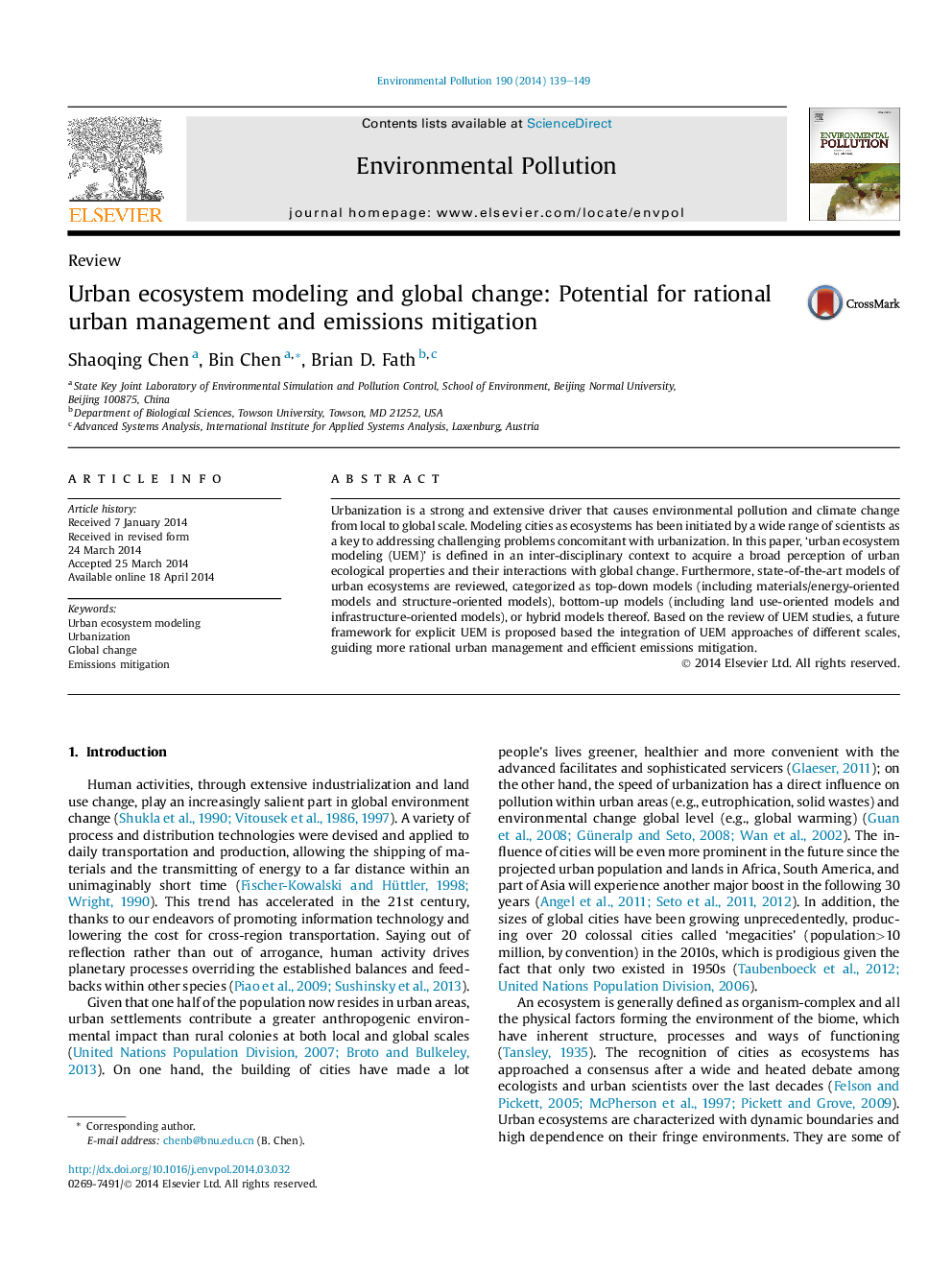| Article ID | Journal | Published Year | Pages | File Type |
|---|---|---|---|---|
| 4424323 | Environmental Pollution | 2014 | 11 Pages |
•Urban ecosystems modeling (UEM) is defined in an interdisciplinary context.•State-of-the-art models for UEM are critically reviewed and compared.•An integrated framework for explicit UEM is proposed under global change.
Urbanization is a strong and extensive driver that causes environmental pollution and climate change from local to global scale. Modeling cities as ecosystems has been initiated by a wide range of scientists as a key to addressing challenging problems concomitant with urbanization. In this paper, ‘urban ecosystem modeling (UEM)’ is defined in an inter-disciplinary context to acquire a broad perception of urban ecological properties and their interactions with global change. Furthermore, state-of-the-art models of urban ecosystems are reviewed, categorized as top-down models (including materials/energy-oriented models and structure-oriented models), bottom-up models (including land use-oriented models and infrastructure-oriented models), or hybrid models thereof. Based on the review of UEM studies, a future framework for explicit UEM is proposed based the integration of UEM approaches of different scales, guiding more rational urban management and efficient emissions mitigation.
